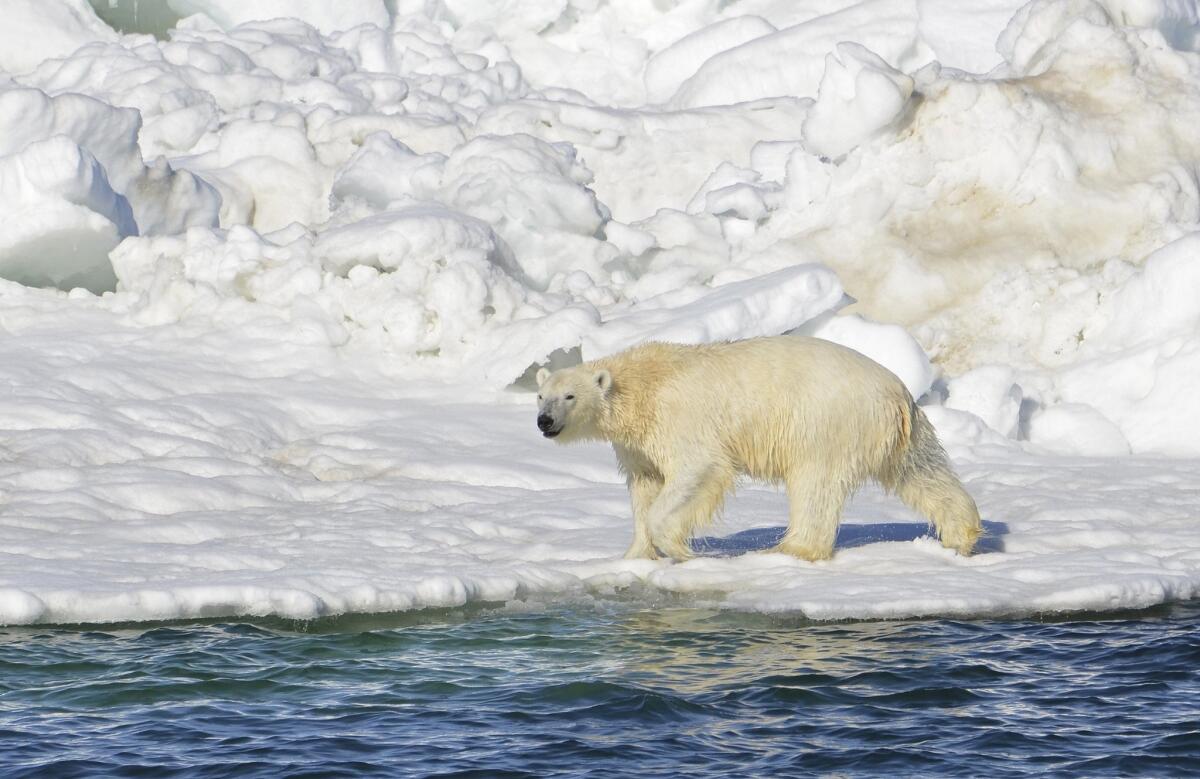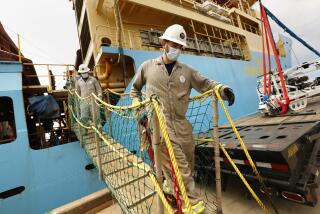Editorial: Drilling for oil in the Chukchi Sea isn’t worth the risk

A polar bear dries off after taking a swim in the Chukchi Sea in Alaska. The U.S. Interior Department has said updated scientific models don’t bode well for polar bear populations across the world, especially in Alaska, the only state in the nation with the white bears.
- Share via
The Obama administration is being at least somewhat more cautious this time around in allowing Royal Dutch Shell to drill in the Arctic waters of the Chukchi Sea. The company must keep its drills from reaching the oil reserves until it has the equipment in place that can shut down a well in case of a spill. It may not drill in two places within 15 miles of each other because of the potential disruption to walrus habitat. The company has worked hard to convince Interior Department officials that it has overcome the sloppiness that led to a series of mishaps during its first attempt in 2012, including the grounding of its drilling rig.
And yet it’s not enough. Shell’s ineptitude on its first try, after it had given the public and the federal government ringing assurances about how prepared it was, earned the public’s distrust. As that experience illustrated, Shell didn’t fully understand the extraordinary challenges of drilling in these far-northern seas, which are prone to ferocious storms and which quickly become strewn with ice floes in the fall and winter. Even with Shell’s overhauling of its operations, a federal report earlier this year estimated a 75% chance of at least one large oil spill over the life of the 77-year lease.
The toll could be high. The Chukchi is among the most pristine marine environments in the world, providing habitat for a wide range of protected species, including walruses, ringed seals and the spectacled eider, an eye-catching sea duck. And it is home to half of all the United States’ polar bears.
What would be reaped from the drilling? According to estimates of the recoverable oil under the Chukchi, perhaps enough to provide all the oil the United States would need for four years and a bit more. Four years isn’t very long. It’s not worth the long-term risk.
There’s a particularly ugly irony in all this: Climate change has reduced the thickness and extent of the ice in the Chukchi Sea, making it more hospitable to drilling — which isn’t all that hospitable. At the same time, the burning of oil is a major contributor to continued climate change.
Obviously, the world isn’t going to instantly rid itself of all fossil fuels as it moves toward sustainable sources of energy; it would be foolish to demand that no new exploration can occur anywhere. But the Obama administration, which has pledged to combat climate change, is sending a mixed message about its commitment when it embraces the production of greenhouse gases in a place already so dramatically affected by climate change.
Follow the Opinion section on Twitter @latimesopinion and Facebook
More to Read
A cure for the common opinion
Get thought-provoking perspectives with our weekly newsletter.
You may occasionally receive promotional content from the Los Angeles Times.









